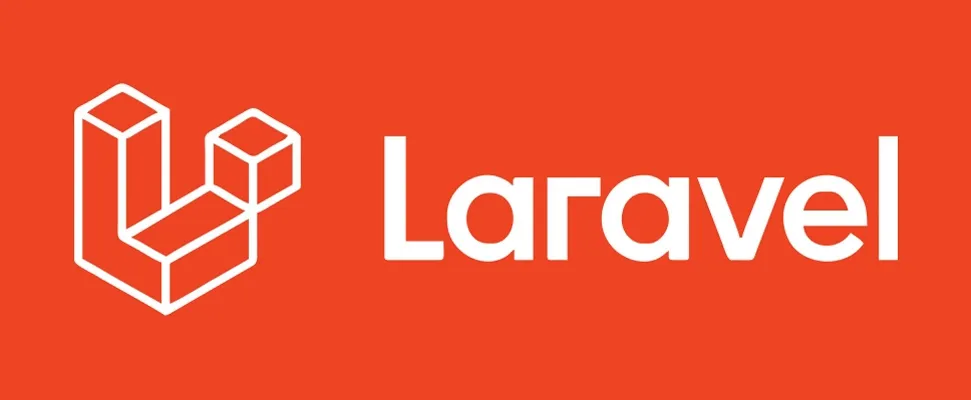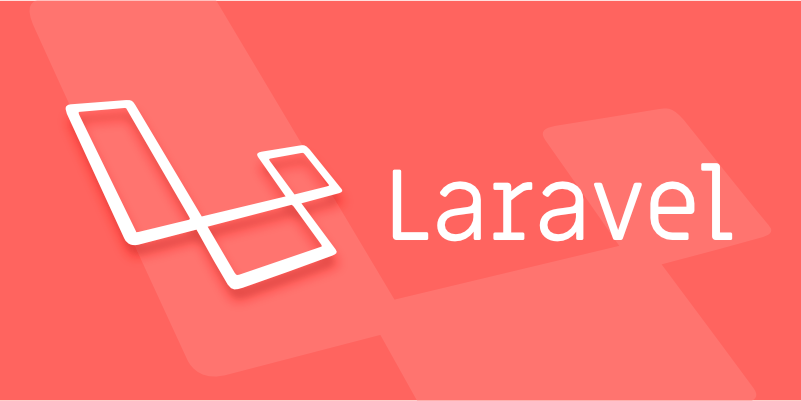Error Handling and Logging in Laravel.
Jul 24, 2025 am 03:55 AMProper handling of errors and logging in Laravel projects can improve maintenance. The core methods include: 1. Use App\Exceptions\Handler to centrally catch exceptions, customize responses such as JSON format; 2. Use report and render to record and respond separately for specific exceptions, or process silently; 3. Use Monolog to configure multiple log drivers such as Slack to notify errors; 4. Distinguish debugging and production environment settings to avoid exposure of sensitive information; 5. Avoid abuse of try-catch, correctly use log levels, and clean log files regularly.

In Laravel projects, reasonable error handling and logging can not only help you quickly locate problems, but also improve the maintainability of the system. Laravel provides an exception handling mechanism and logging system out of the box, but if they really play their role, some adjustments need to be made according to the actual scenario.

Exception handling: from global to details
Laravel's App\Exceptions\Handler is the centralized processing point for all exceptions. You can catch exceptions here and return custom responses. For example, when a user accesses an API interface that does not exist, you may want to return a JSON error in a unified format, rather than the default HTML page.
use Illuminate\Auth\AuthenticationException;
use Illuminate\Http\Request;
protected function unauthenticated($request, AuthenticationException $exception)
{
return response()->json([
'message' => 'Unauthenticated.',
], 401);
}- For specific exceptions, such as database exceptions and verification failures, you can use
reportandrendermethods to record and respond separately. - If you want to silently handle certain exceptions (not logged to the log), you can add judgment in
reportmethod.
Logging: Not just Log::info
Laravel uses Monolog as the underlying log library and supports a variety of log drivers, including single , daily , slack , papertrail , etc. The default is stack , combining multiple log channels.

- Modify
LOG_CHANNEL=stackin the.envfile to switch the log driver. - You can configure log format, level, storage path, etc. in
config/logging.php.
For example, you can configure a separate channel for the error log and send it to Slack:
'slack' => [
'driver' => 'slack',
'url' => env('LOG_SLACK_WEBHOOK_URL'),
'username' => 'Laravel Log',
'emoji' => ':boom:',
'level' => 'error',
],In this way, when a serious error occurs, the team can receive notification as soon as possible.

Debugging and production environments should be distinguished
During the development phase, we want to see detailed error information, including stack traces. But in production environments, this information should not be exposed to users.
- Env to ensure that
APP_DEBUG=falseis in.env, so that the production environment will not output sensitive information. - Laravel will automatically log exceptions to the log without manually calling
Log::error(). - If you use third-party error tracking tools such as Sentry and Bugsnag, you can synchronize exceptions by configuring the log channel.
Common misunderstandings and suggestions
- Don't write too much try-catch in the controller : unless you have a clear recovery strategy, it's better to let exceptions bubbling into the Handler.
- Only when the log level is used correctly can it be effective : debug, info, notice, warning, error, critical, alert, emergency levels should be used reasonably to avoid logs being flooded.
- Clean log files regularly : especially when using the daily driver, don't forget to add a scheduled task to clean up old logs.
Basically that's it. Error handling and logging don't seem complicated, but they are easily overlooked in actual projects, especially in the early stages of teamwork and online. Plan ahead and save a lot of worries later.
The above is the detailed content of Error Handling and Logging in Laravel.. For more information, please follow other related articles on the PHP Chinese website!

Hot AI Tools

Undress AI Tool
Undress images for free

Undresser.AI Undress
AI-powered app for creating realistic nude photos

AI Clothes Remover
Online AI tool for removing clothes from photos.

Clothoff.io
AI clothes remover

Video Face Swap
Swap faces in any video effortlessly with our completely free AI face swap tool!

Hot Article

Hot Tools

Notepad++7.3.1
Easy-to-use and free code editor

SublimeText3 Chinese version
Chinese version, very easy to use

Zend Studio 13.0.1
Powerful PHP integrated development environment

Dreamweaver CS6
Visual web development tools

SublimeText3 Mac version
God-level code editing software (SublimeText3)

Hot Topics
 How to set environment variables in PHP environment Description of adding PHP running environment variables
Jul 25, 2025 pm 08:33 PM
How to set environment variables in PHP environment Description of adding PHP running environment variables
Jul 25, 2025 pm 08:33 PM
There are three main ways to set environment variables in PHP: 1. Global configuration through php.ini; 2. Passed through a web server (such as SetEnv of Apache or fastcgi_param of Nginx); 3. Use putenv() function in PHP scripts. Among them, php.ini is suitable for global and infrequently changing configurations, web server configuration is suitable for scenarios that need to be isolated, and putenv() is suitable for temporary variables. Persistence policies include configuration files (such as php.ini or web server configuration), .env files are loaded with dotenv library, and dynamic injection of variables in CI/CD processes. Security management sensitive information should be avoided hard-coded, and it is recommended to use.en
 How to make PHP container support automatic construction? Continuously integrated CI configuration method of PHP environment
Jul 25, 2025 pm 08:54 PM
How to make PHP container support automatic construction? Continuously integrated CI configuration method of PHP environment
Jul 25, 2025 pm 08:54 PM
To enable PHP containers to support automatic construction, the core lies in configuring the continuous integration (CI) process. 1. Use Dockerfile to define the PHP environment, including basic image, extension installation, dependency management and permission settings; 2. Configure CI/CD tools such as GitLabCI, and define the build, test and deployment stages through the .gitlab-ci.yml file to achieve automatic construction, testing and deployment; 3. Integrate test frameworks such as PHPUnit to ensure that tests are automatically run after code changes; 4. Use automated deployment strategies such as Kubernetes to define deployment configuration through the deployment.yaml file; 5. Optimize Dockerfile and adopt multi-stage construction
 What is Configuration Caching in Laravel?
Jul 27, 2025 am 03:54 AM
What is Configuration Caching in Laravel?
Jul 27, 2025 am 03:54 AM
Laravel's configuration cache improves performance by merging all configuration files into a single cache file. Enabling configuration cache in a production environment can reduce I/O operations and file parsing on each request, thereby speeding up configuration loading; 1. It should be enabled when the application is deployed, the configuration is stable and no frequent changes are required; 2. After enabling, modify the configuration, you need to re-run phpartisanconfig:cache to take effect; 3. Avoid using dynamic logic or closures that depend on runtime conditions in the configuration file; 4. When troubleshooting problems, you should first clear the cache, check the .env variables and re-cache.
 How to build a content payment platform through PHP How to implement PHP paid reading system
Jul 25, 2025 pm 06:30 PM
How to build a content payment platform through PHP How to implement PHP paid reading system
Jul 25, 2025 pm 06:30 PM
To build a PHP content payment platform, it is necessary to build a user management, content management, payment and permission control system. First, establish a user authentication system and use JWT to achieve lightweight authentication; second, design the backend management interface and database fields to manage paid content; third, integrate Alipay or WeChat payment and ensure process security; fourth, control user access rights through session or cookies. Choosing the Laravel framework can improve development efficiency, use watermarks and user management to prevent content theft, optimize performance requires coordinated improvement of code, database, cache and server configuration, and clear policies must be formulated and malicious behaviors must be prevented.
 PHP development user permission management monetization PHP permission control and role management
Jul 25, 2025 pm 06:51 PM
PHP development user permission management monetization PHP permission control and role management
Jul 25, 2025 pm 06:51 PM
User permission management is the core mechanism for realizing product monetization in PHP development. It separates users, roles and permissions through a role-based access control (RBAC) model to achieve flexible permission allocation and management. The specific steps include: 1. Design three tables of users, roles, and permissions and two intermediate tables of user_roles and role_permissions; 2. Implement permission checking methods in the code such as $user->can('edit_post'); 3. Use cache to improve performance; 4. Use permission control to realize product function layering and differentiated services, thereby supporting membership system and pricing strategies; 5. Avoid the permission granularity is too coarse or too fine, and use "investment"
 How to use PHP combined with AI to analyze video content PHP intelligent video tag generation
Jul 25, 2025 pm 06:15 PM
How to use PHP combined with AI to analyze video content PHP intelligent video tag generation
Jul 25, 2025 pm 06:15 PM
The core idea of PHP combining AI for video content analysis is to let PHP serve as the backend "glue", first upload video to cloud storage, and then call AI services (such as Google CloudVideoAI, etc.) for asynchronous analysis; 2. PHP parses the JSON results, extract people, objects, scenes, voice and other information to generate intelligent tags and store them in the database; 3. The advantage is to use PHP's mature web ecosystem to quickly integrate AI capabilities, which is suitable for projects with existing PHP systems to efficiently implement; 4. Common challenges include large file processing (directly transmitted to cloud storage with pre-signed URLs), asynchronous tasks (introducing message queues), cost control (on-demand analysis, budget monitoring) and result optimization (label standardization); 5. Smart tags significantly improve visual
 Explain Laravel Eloquent Scopes.
Jul 26, 2025 am 07:22 AM
Explain Laravel Eloquent Scopes.
Jul 26, 2025 am 07:22 AM
Laravel's EloquentScopes is a tool that encapsulates common query logic, divided into local scope and global scope. 1. The local scope is defined with a method starting with scope and needs to be called explicitly, such as Post::published(); 2. The global scope is automatically applied to all queries, often used for soft deletion or multi-tenant systems, and the Scope interface needs to be implemented and registered in the model; 3. The scope can be equipped with parameters, such as filtering articles by year or month, and corresponding parameters are passed in when calling; 4. Pay attention to naming specifications, chain calls, temporary disabling and combination expansion when using to improve code clarity and reusability.
 How to build a log management system with PHP PHP log collection and analysis tool
Jul 25, 2025 pm 08:48 PM
How to build a log management system with PHP PHP log collection and analysis tool
Jul 25, 2025 pm 08:48 PM
Select logging method: In the early stage, you can use the built-in error_log() for PHP. After the project is expanded, be sure to switch to mature libraries such as Monolog, support multiple handlers and log levels, and ensure that the log contains timestamps, levels, file line numbers and error details; 2. Design storage structure: A small amount of logs can be stored in files, and if there is a large number of logs, select a database if there is a large number of analysis. Use MySQL/PostgreSQL to structured data. Elasticsearch Kibana is recommended for semi-structured/unstructured. At the same time, it is formulated for backup and regular cleaning strategies; 3. Development and analysis interface: It should have search, filtering, aggregation, and visualization functions. It can be directly integrated into Kibana, or use the PHP framework chart library to develop self-development, focusing on the simplicity and ease of interface.






